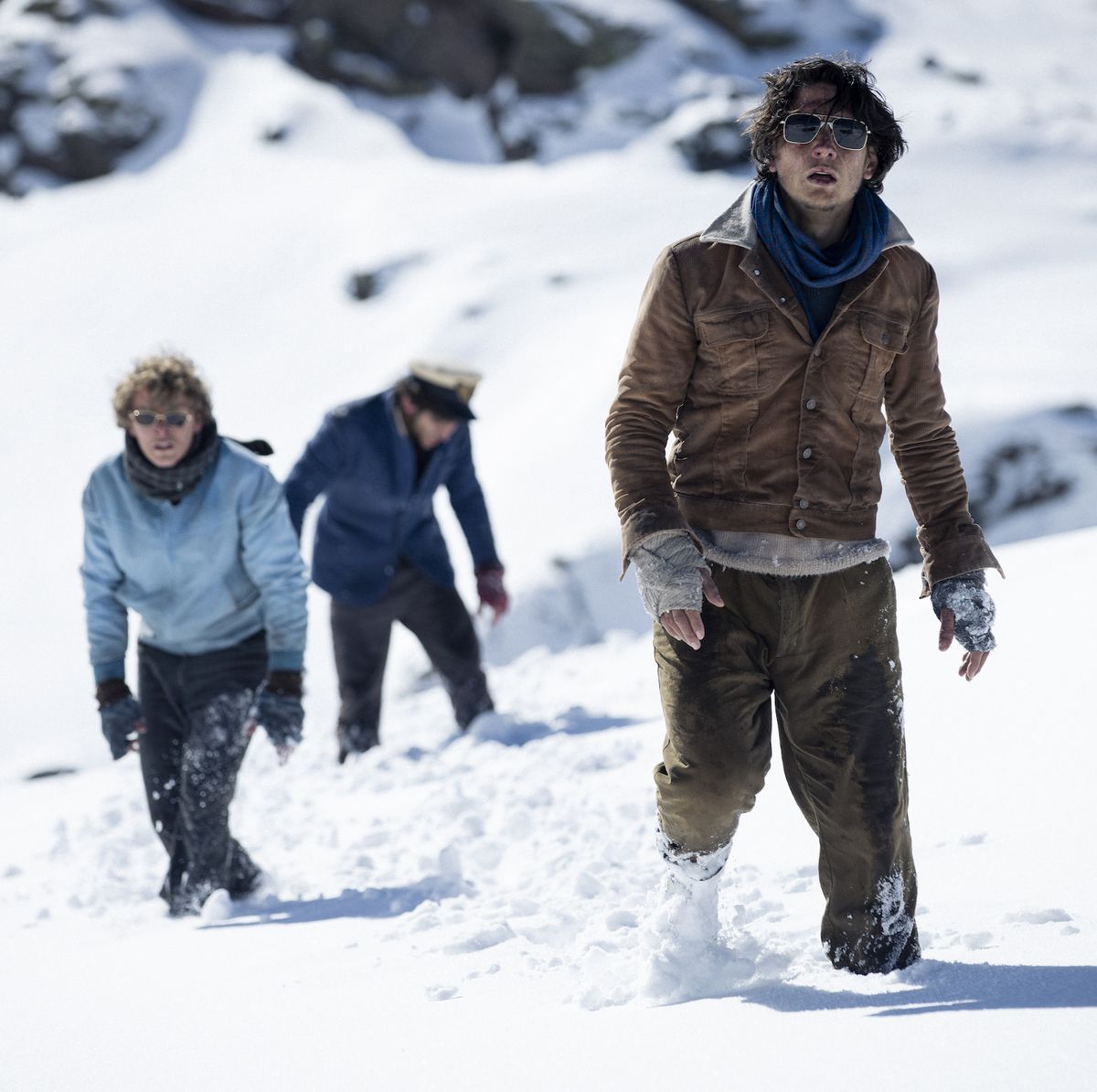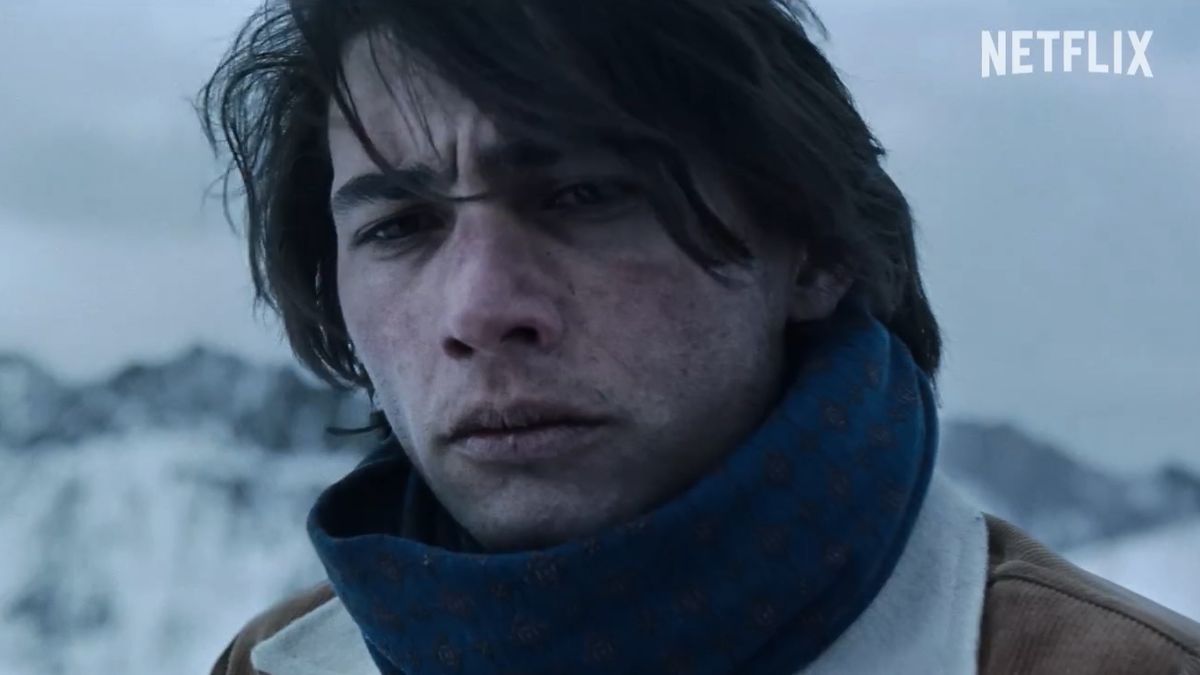On 13 October 1972, Uruguayan Air Force Flight 571 crashed into a glacier in the Andes on its way from Montevideo, Uruguay to Santiago, Chile. Many of the 45 people on board were Uruguayan rugby players. The plane was ripped to pieces, killing passengers and crew immediately. And for the survivors, what happened in the following months was a excruciating descent into human survival: avalanches and hostile winds and most chilling of all, cannibalism. Only 16 people made it out of the mountains alive.
It is a remarkable story, absurdly ripe for retelling and adaptation. Many of the survivors have written books and who can blame them? That experience was likely cathartic and possibly sense-making. And everything about the story, from the hostile environment to the gruesome plot details, makes it ideal for the cinema. The most high-profile attempt was 1993’s Alive, an adaptation of British historian’s Piers Paul Read’s account of the crash, directed by Frank Marshall and starring Ethan Hawke. It has some terrific sequences but the overall thrust was a full-throttle embrace of Hollywood: all hope and heroes and endurance. There have, of course, been many other documentaries and podcasts and TV movies, and now we have another feature film: Society of the Snow, recently Oscar-nominated for Best International Feature. After its January release on Netflix, the Spanish-language film – surely a dark horse at the Academy Awards – became one of Netflix’s most watched non-English language films ever, clocking in over 50 million views (and counting).
Thankfully, director J. A. Bayona (whose previous work includes another true-story disaster flick The Impossible and very much not true-story disaster flick Jurassic World: Fallen Kingdom) is unafraid to go hard on the uglier parts of this story. At times, Bayona’s camera angles presents these beleaguered men – absurdly good-looking actors with enviable ‘70s flares and swooped fringes – as not quite human. Their facial features are distorted into the figures of a Goya painting. Conversely, when time comes for the cannibalism, because of course it must, Bayona eschews gross-out tactics and focuses on the practicalities: how to dismember the dead bodies, how to stomach the flesh (with plenty of ice to dilute the tastes). An unimaginable situation is presented as a how-to survival guide.
Liberties have been taken – for example, the survivors were rescued over two nights not in one fell swoop as the film depicts – and you can read about those comparisons elsewhere. But what is more interesting is how Bayona chooses to frame this well-worn story. The film is narrated by law student Numa Turcatti, played by stand-out Enzo Vogrincic, who seems destined for big things. He is a rousing, philosophical addition to the men, whose presence is made doubly tragic by the fact that he was not really supposed to be there. He does not play for the team, and simply could not could not resist the relatively cheap flight to Chile. Turcatti – and perhaps this is a spoiler, so avert your eyes for a 50-year-old news item – does not make it out alive: killing off the narrator two thirds of the way through adds a fresh twist to a familiar tale.
With a run time of over two-and-a-half hours, the film stretches a viewer’s limits. But the tediousness works, for what is more tedious than hoping? Over and over again, the rugby players head out on walks in an attempt to retrieve the plane’s engine where they hope that batteries stored. Over and over again, they try to make the radio work to make contact with the outside world (crushingly, they instead hear that the search party has moved on). There are some simplistic sentiments about the power of friendship, but mostly the film is an antidote to the real-life awards bait, which often blandly papers over survival stories. It is certainly miles ahead of other Netflix movies based on a true story (of which there are countless).
Towards the end, as the players are washed and cleaned in hospital – a sequence that should feel euphoric, but lands with a thud – we see their starved bodies for the first time without clothing. Throughout, they have been layered in sweaters and coats, and the reveal has the effect of a twist ending: you expect to see them as superheroes, but they are skeletal. It neatly evokes the confusing aftermath of traumatic events, and in real life, there was indeed public backlash after stories of the men’s cannibalism broke. Bayona’s resistance of a Hollywood ending gives the men the complexity they deserve, and it is also what makes this film linger long after the credits: hope persists, yes, but so does terror.
‘Society of the Snow’ is available on Netlix now
Henry Wong is a senior culture writer at Esquire, working across digital and print. He covers film, television, books, and art for the magazine, and also writes profiles.













